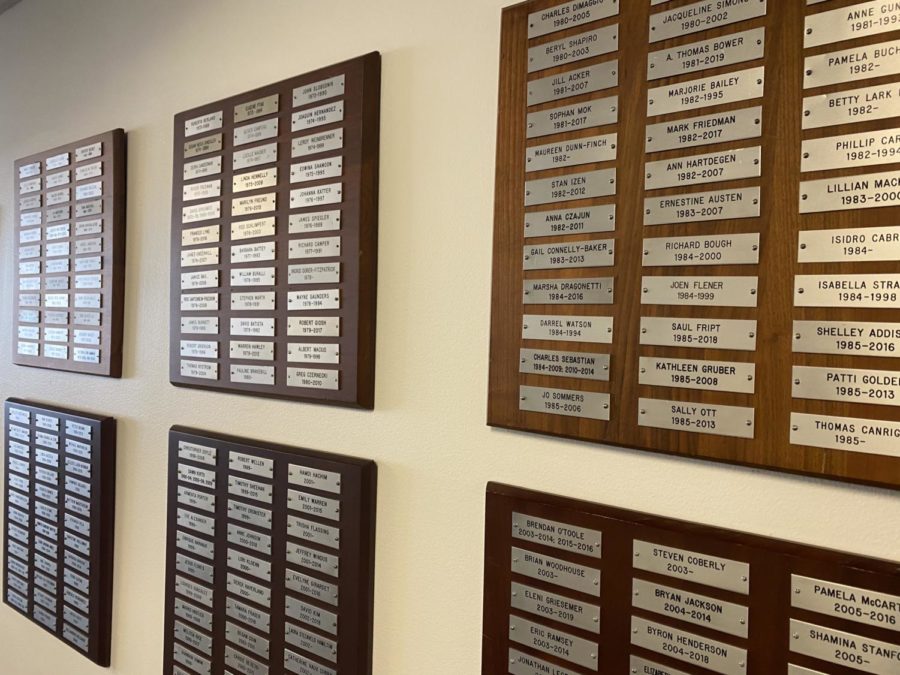Unionization, from Both Sides’ Perspectives
April 21, 2021
On April 16, The Forum published an article about the Latin faculty’s move to unionize, and Head of School Randall Dunn’s opposition to this move. In order to present both sides’ arguments equally and accurately, The Forum asked each side to respond to two questions, with a 250-word limit for each question. The Forum has made no edits to the responses.
Head of School Randall Dunn:
How would having a faculty union at Latin affect students and the overall student experience?
“In my view, the biggest challenge to student life when you have a unionized faculty is the prospect of a strike. If you asked a CPS student/family, I am sure that they could share how the 2019 strike disrupted their lives. I also believe that unionization would significantly impact many elements of Latin’s culture that we value as a school community—personalization, collaboration, creative problem-solving, and how we strive to always be and do better together.”
How would having a faculty union affect the faculty, staff and administration, the relationships among those groups, and decision-making at the school?
“The union that is seeking to represent the faculty is the Illinois Federation of Teachers, an entity that is not currently part of the Latin community. With the IFT as the faculty’s bargaining agent, some of the changes that we could see include (1) a more formalized system of conflict resolution; (2) the assessment of union dues to all members of the faculty bargaining unit, even if they don’t support the union; (3) the faculty’s involvement in school governance through the Faculty Council, Board committees/subcommittees, task forces, etc. being replaced by the union; and (4) division between those employees who are represented by the union and those who are not. We pride ourselves on being #RomansTogether, and unions often foster an “us” vs. “them” dynamic. Another aspect to consider is that collective bargaining typically only occurs once every three years, and then Latin must manage operations as if things stay the same for those three years. At Latin, we pride ourselves on being nimble and able to adapt to trends and changes around us as well as the needs of our students, which evolve over time. The constraints of a labor agreement might cause us to become less agile in adjusting to the changing demands of school life and the ability to remain flexible.”
The Organizing Committee (responses by Upper School Latin teacher and Union spokesperson Elissabeth Legendre):
How would having a faculty union at Latin affect students and the overall student experience?
“The administration, faculty, and staff at Latin all care deeply about students and strive each day to ensure we can provide the best education for all. Having a faculty union at Latin School will improve the overall school experience for students and the entire school community. That is the most important reason why we want to organize. While students likely won’t feel a change in their day-to-day school life, giving faculty—who are education experts—greater input in decisions that impact teaching and learning will lead to a better student experience. A union will also help us create a fairer workplace, which in turn will help us attract and retain the high-quality teachers that students deserve. Unionizing will also help our faculty hold the school accountable for its DEI goals, which will help Latin become the inclusive community it strives to be, bettering the experience and education for all students.”
How would having a faculty union affect the faculty, staff and administration, the relationships among those groups, and decision-making at the school?
“One of our main goals in organizing is to improve collaboration between the administration and faculty. While we do great work together in many instances at Latin, we can do better. We truly believe that unionizing will be in everyone’s long-term best interest because it will establish a framework for collective bargaining and shared decision-making that will lead to optimal outcomes. We understand change can be difficult, but this change is worthwhile. When faculty have greater influence in critical teaching and learning decisions made at the school, we’ll be better able to advocate for our students. In our Union, we hope to rebuild a strong culture of mutual respect between faculty and administration, which can only serve to benefit the entire school community.”


























































